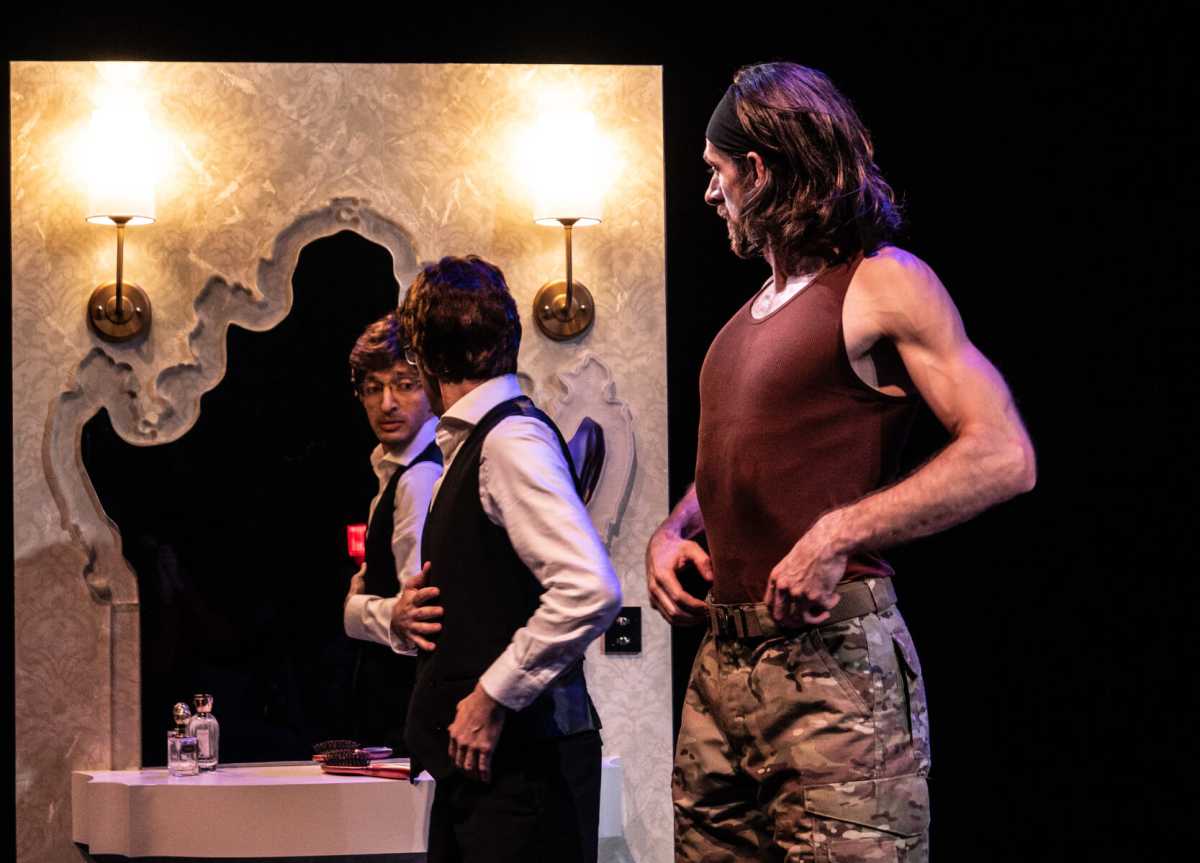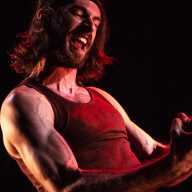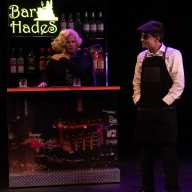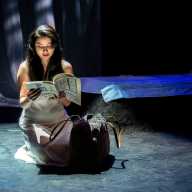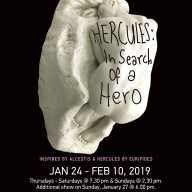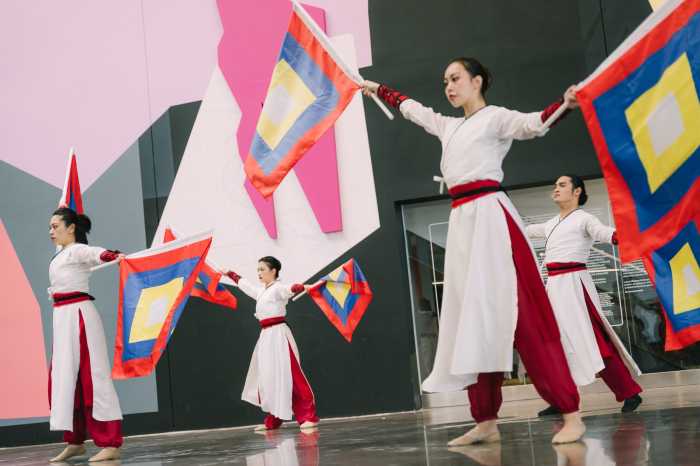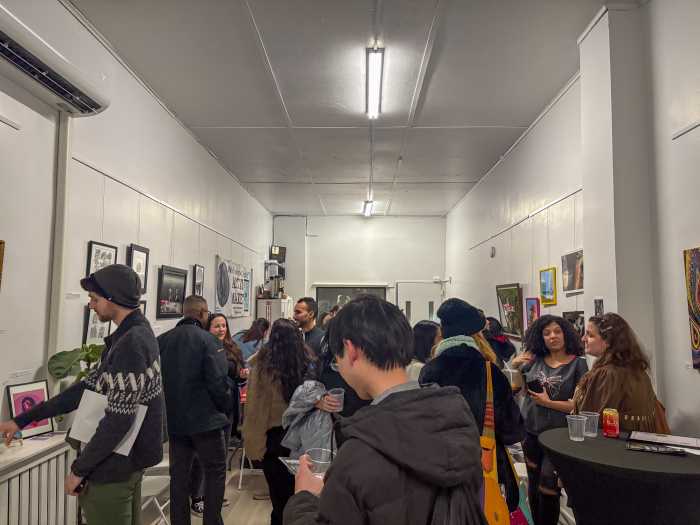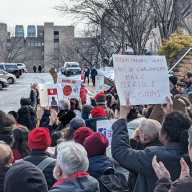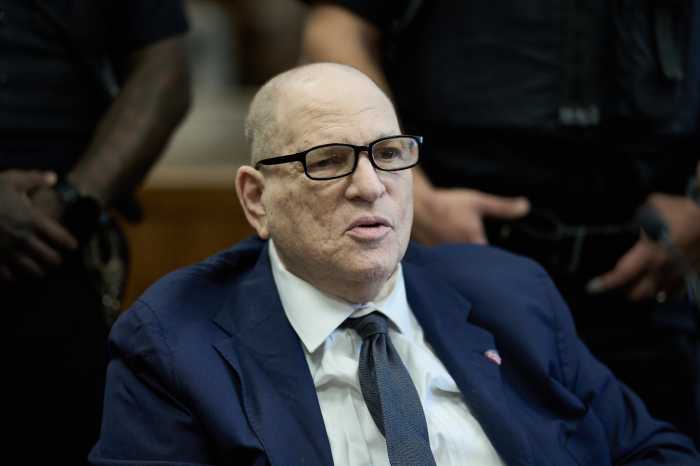BY TAMMY SCILEPPI
Queens is home to a robust Greek population, as well as a thriving community of Greek artists who have been contributing to the creative fabric here for a long time.
A multi-ethnic cast performs in Eclipses Group Theater New York’s upcoming world premiere of “Hercules: In Search of a Hero,” which explores the meaning of heroism in our time.
The play was conceived and directed by co-founder Ioanna Katsarou and translated by Demetri Bonaros — both longtime Astoria residents — with original compositions by Costas Baltazanis).
The play opened Jan. 26 at the Abrons Arts Center, as part of the @Abrons Series program. You can catch this limited engagement through Feb. 10.
The center is located at 466 Grand St. (at Pitt St.) in Manhattan.
Combining excerpts from Euripides’ plays “Hercules” and “Alcestis,” along with original compelling material, Hercules is described as heroic by killing, heroic by dying in this new theater piece. A man of violence and death. Alcestis stands out for an act of self-sacrifice.
“The play challenges the conventional, masculine notion of heroism and contemplates a feminine alternative, using poetic language and images,” according to Katsarou, a member of the Lincoln Center Theater Directors Lab 2017.
“Hercules is the greatest and most popular hero of Greek antiquity but also the most ambivalent one. Today, most of us are familiar only with his heroic side and not with his dark side. In ‘Hercules’ and ‘Alcestis,’ Hercules is not presented as heroically as we may expect,” Katsarou added, noting what is unique about Euripides “is how he reconstructs the traditional myths in his plays in order to challenge and question his own society and reality.”
Katsarou’s own adventure with this project was inspired by Euripides’ innovative style. She said she discovered “a strong inner connection between the two plays, parallel movements and ideas that are still topical,” and pointed out that although 95 percent of the text comes from these plays, “Hercules: In Search of a Hero” is a new piece, a synthesis of Euripides’ poetry and ideas in a new context.
How does the new play reflect our modern times?
“The legacy of ancient Greece, and Athens in particular, is found practically everywhere in the modern Western world — in democracy, science, the arts, philosophy, sports and so on. Yet the two societies are also similar in another, less celebrated area: privileging man over woman,” Bonaros explained. “As Athens became the world’s first democracy — a truly singular achievement — women became collateral damage, as it were. With the Athenian political system depending very heavily on citizenship, the city restricted the movements of its women, lest they should birth children whose fathers were not Athenian citizens.”
“While this explicit distinction between the genders is no longer present, the implicit designation of women as second-class citizens stubbornly persists — in wages, political representation, access to leadership positions in the workplace,” Bonaros added. “In ‘Hercules,’ these concerns lurk in the background, with the play taking place in an unspecified modern American setting.”
So, what is the feminine alternative to Hercules’ masculinity, and the play’s message?
According to Katsarou, who has performed in more than 25 productions and directed more than 15 plays, “Hercules: In Search of a Hero,” asks: What counts as heroism in our times? Is an act heroic if it involves violence? What is the place of women in the modern, Western mythology of heroism? Do we need to create new mythologies and eventually a new concept of the world?
Performances will be Thursdays to Saturdays at 7:30 p.m. and Sundays at 2:30 p.m.
For tickets and more information, visit www.AbronsArtsCenter.org or call 212-598-0400.

